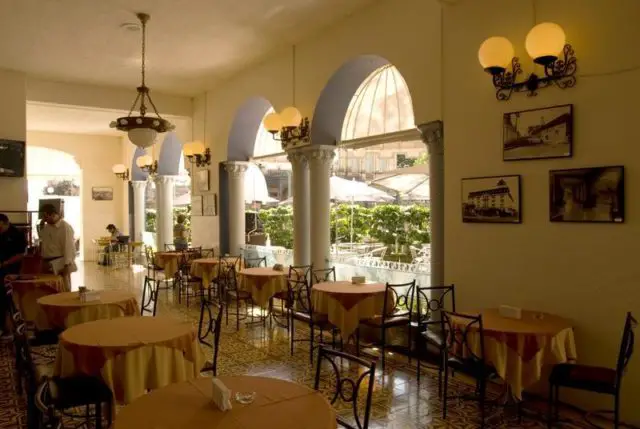Last Thursday (April 30th), the Costa Rican Chamber of Restaurants (Cacore) updated the figures affecting this sector: there are already 8,500 closed businesses, mostly small and medium-sized companies, as well as some 121,000 unemployed people, as a result of the crisis caused by the coronavirus pandemic.

Before the pandemic, the union consisted of around 19,000 restaurants and 228,000 working people, with an approximate contribution to the Gross Domestic Product (GDP) of 1.76%, Cacore said. However, as the months go by, many more restaurants and related businesses join the list of temporary and permanent closings.
The spokesperson of the chamber, Clemencia Palomo, explained that San José and Puntarenas are the provinces most affected by the closure of restaurants and sodas. Palomo highlighted that the survey carried out within the guild, completed on April 25th, yielded the following data:
• 55% of restaurants are still open
• Out of the open businesses, 69% have payrolls of less than 25 people; 13% of 26 to 50 employees
• 53% of restaurants have had to lay off staff
• 27% of restaurants currently open do not achieve positive numbers, so they do not rule out closing their doors in the coming months
• An estimated 121,000 layoffs in the sector since the start of the crisis (around 12,000 people in 30 days)
Opening for weekends
Merchants in the restaurant sector were surprised after Health did not include them in the easing to start, little by little, to revive the economy. Days ago, Palomo assured that they were certain that they would be allowed to open weekends for customer service, or at least enable the option that customers could go to pick up the order.

The new measures did not include businesses in the commerce or restaurant sectors, which must use home services on weekends to make sales. But even so, Palomo said, a large part of the small restaurants have not been able to access these platforms or motorized ones, which has further affected income. “The restaurant sector is dying. We feel that this is the slow death of the restaurant sector, but we are not going to stop”, said the spokesperson at a press conference.
Francisco Soto, director of Cacore, assured that despite the sector complying with all hygiene and safety protocols, they are working on guidelines for the prevention of COVID-19 and business continuity, which they hope to present to the Ministry of Health in the upcoming days. “We have gone beyond national regulations and we are working on guidelines following the guidelines of international organizations, governments, and restaurant chambers of countries that are reactivating business in this sector”, said the manager.
“We need to enable the working hours of restaurants and soda, from Monday to Sunday, in accordance with the provisions of vehicle restrictions and hours. The authorization of the establishments would include the 3 types of sales; table service, respecting the maximum capacity of 50% occupancy, delivery service at the counter or to the vehicle and home-delivery service”, added Palomo.
Difficulty with patents and other procedures
In the survey, 83% of restaurant entrepreneurs indicated that they have had to take moratoriums in order to survive. Just over 68% of the sector considers that the central government and the municipalities have not done enough to help small and medium restaurants.
All this, because of the payment of patents, the difficulty of accessing financing, and the short term in which the moratoriums on public services were established is part of what drowns the sector in mid-crisis due to COVID-19.
Entrepreneurs called on main landlords and realtors to reach agreements with tenants since high rents have remained largely unchanged. With regard to the restaurant sector, Cacore urged the Legislative Assembly to approve the project to make working hours more flexible.

